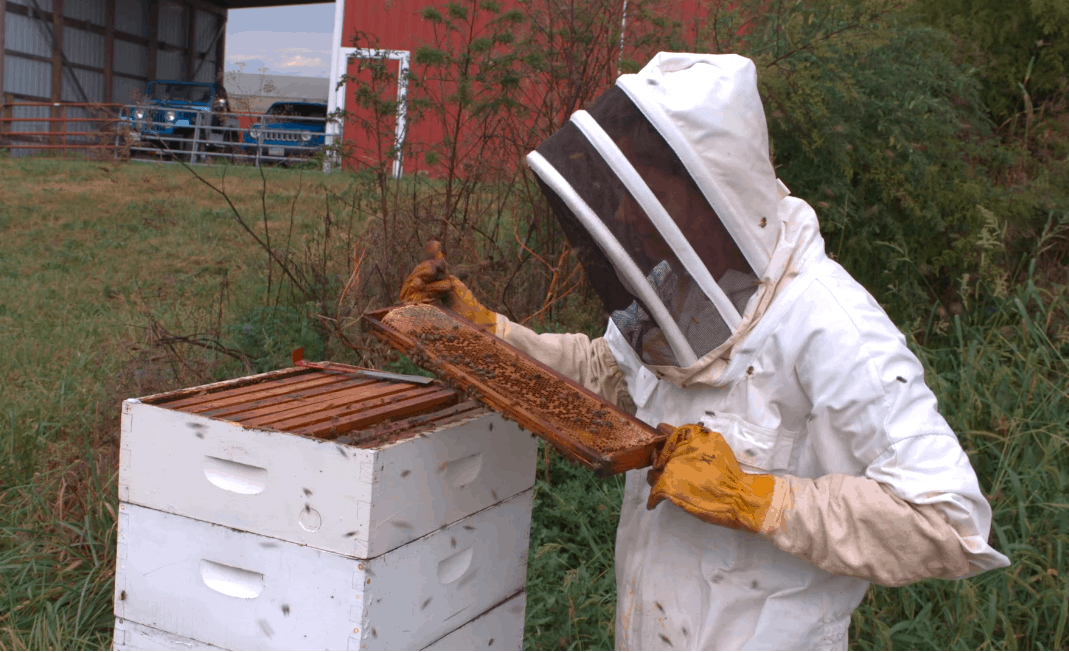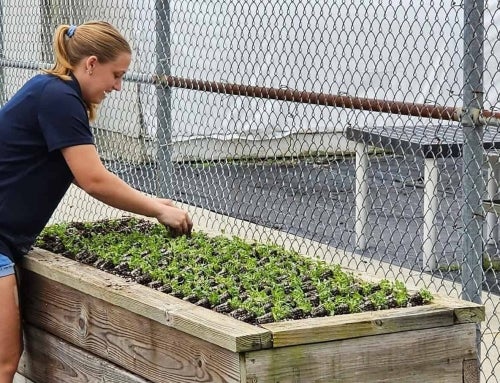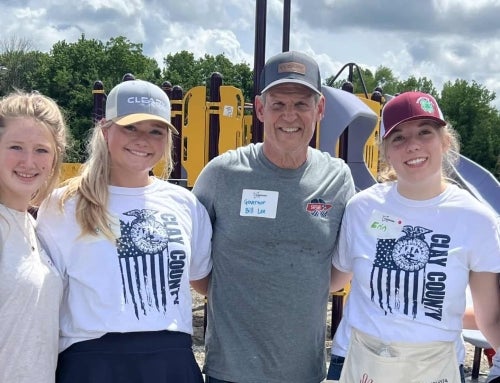Olivia Pflaumer’s relationship with bees and honey began in elementary school when her family moved to a farm. While raising goats and growing produce, the family also managed an apiary. When high school came around the corner, she saw the opportunity to conduct research with her honey operation.
As a member of the Zane Trace FFA Chapter in Chillicothe, Ohio, Pflaumer started her agriscience supervised agricultural experience (SAE) as a freshman, first studying the amount of pollen found in her bees’ honey versus commercially produced honey found on store shelves.
“That was more focused on how it was related to human health because of … that fad where if you eat pollen or eat honey that’s in your area, it [can] help allergies,” she said. “So that was kind of my interest there. I could market my honey better knowing that concretely.”
Later in her high school years, Pflaumer revisited that study, increasing the sample size of locally produced honey. “I was able to actually count the pollen granules in each sample that I was taking.”
With help from researchers at The Ohio State University, Pflaumer also studied how hive insulation impacts winter survival rates. While researching hives protected with reflective bubble wrap, she found that hives with insulation stayed warmer than hives without it. The insulated hives also had a 60 percent higher survival rate compared to unprotected colonies.
“That was great to find out that was something that could help a lot and that would be able to be tested by the beekeepers in the area,” she said.
Pflaumer now studies agriscience education at Ohio State and intends to work as an agriculture educator after graduation. For students interested in starting a research project, she says to stay confident and find a passionate topic.
“If you can find something that you’re passionate about,” she said, “if you are able to pursue that and continue to question what’s going on around you, that’ll help you so much in life.”












